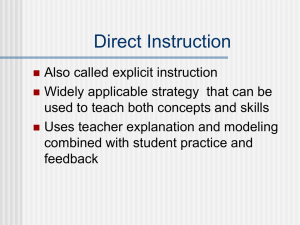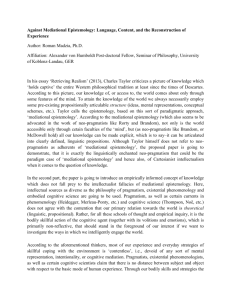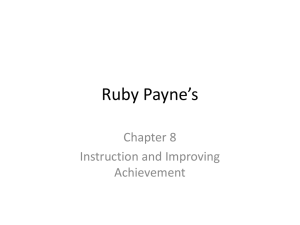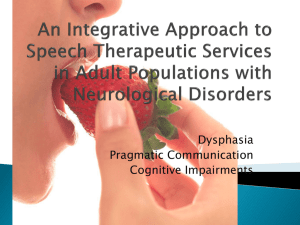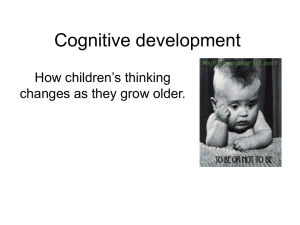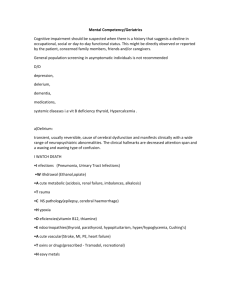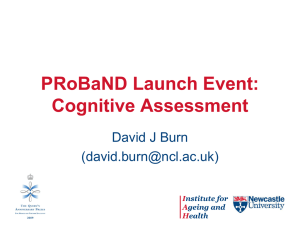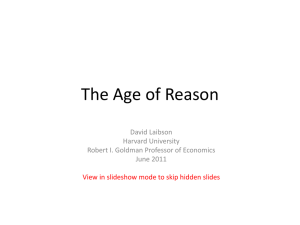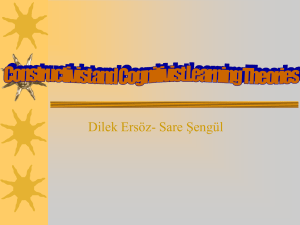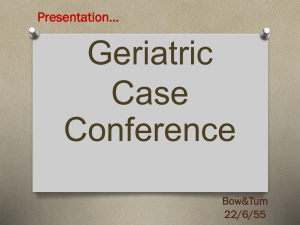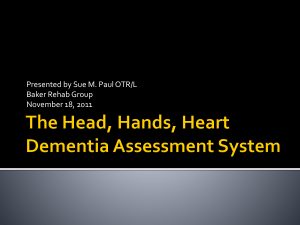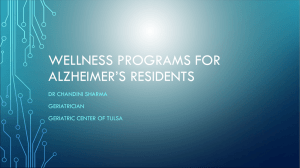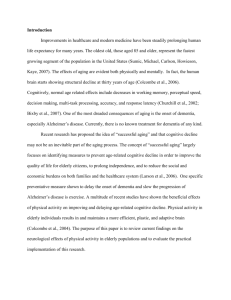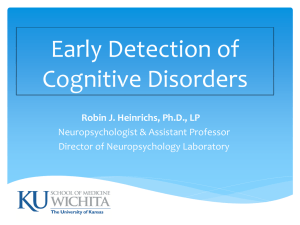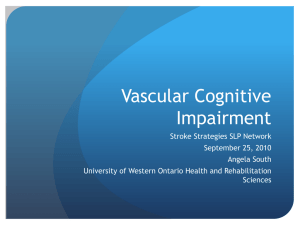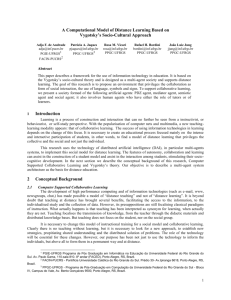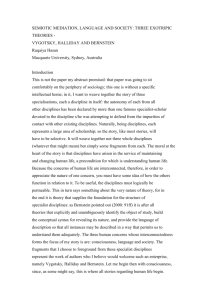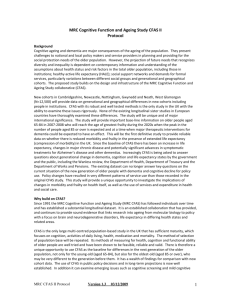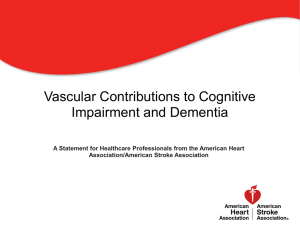Er Vygotskys sosiokultuelle teori om høyere mentale
advertisement
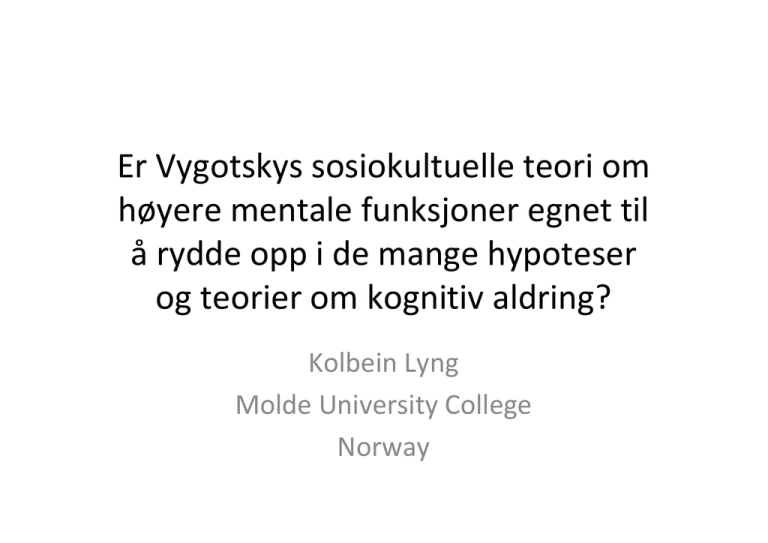
Er Vygotskys sosiokultuelle teori om høyere mentale funksjoner egnet til å rydde opp i de mange hypoteser og teorier om kognitiv aldring? Kolbein Lyng Molde University College Norway Extending L.S. Vygotsky’s work into aging and dementia Historisk kontekst • Post revolution Soviet Union – – – – Building a new psychology Building a new society Educational reforms Psychology should build on I.P. Pavlov • Cultual historical school in psychology – L.S Vygotsky (1896-1934): • semiotic mediation and development. Functional systems – A.R. Luria (1905-1977) • Neuropsychology and development – A. N. Leontjev (1903-1979) • Activity theory and development The origin of higher mental functions • A genesis from lower functions (Stimulusresponse connections ) to higher (mediated) mental functions via signs lower Higher Origin biological social Relation Direct indirect Function Involuntary Voluntary Transitions via the acquisition of language • Language transforms impulsive reactions based on S-R connections to voluntary actions mediated by signs ( language) • Controls the environment (from external to internal control) • Controls oneself (volition) • Moves from impulsive to semantic regulation via signs • Language sets up a functional barrier • Transforms memory and attention – Memory involves active thinking and conceptual structuring – Attention can be directed towards aspects of an situation via language • Zone of proximal development (ZPD): what can be obtained with help of another competent person Triangle of mediation X S R Mediated activity • Goal directed behaviour: object related – intentional • Mediated by signs (language) – Sign used as an object to obtain something • A reminder • A representation Known to a Western audience • • • • • Vygotsky 1927 In Genetic Psychology Translation of Thinking and Speech (1963) Mind in Society (1978) Lurias works in neuropsychology Leontjevs “Problems of the development of the mind”(in German) • Cole with Maltzman: Handbook of contemporary Soviet psychology 1969 • James Wertsch: Vygotsky and the formation of mind 1985 Summary of thoughts • Mental functions/cognitive functions transforms through acquisition of language: mediating tools • Cognitive functions have a social and historical origin (and a biological fundament) • Use of concepts changes interaction with environment • Concepts change their meaning through history Extending to aging and dementia • Cognitive functions are mediated or have a mediation history • Conceptual tools are involved in problem solving activities in cognitive tests • Concepts and meanings may be different across age groups and generations • Tests should make mediational tools available • (zone of proximal development- dynamic testing procedure) Own applications • Study of verbal regulation in mental retardation – A replication of A.R. Luria’s theory of verbal regulation (1979) – With P.A. Kielland & L. Chr. Lahn • Verbal control of motor resposes in visual a discrimination task. • Cognitive assessment in old age 1993 – – – – – Older adults have less education than younger Lack of relevant concepts will impact performance on test of intelligence Zones of proximal development in old age Introduce relevant concept by hints Dynamic testing of intelligence in old age • Semiotic mediation in Dementia 2001 – Deficit in semiotic mediational function? – Difficulty using mediational tools? Aging literature • Plasticity, cognitive reserves etc in healthy old adults (Baltes et al; Lövden, et al; Bäckmann & Nilsson) • Meditional tools improves performance in healthy old adults (Kliegl & Baltes; Bäckmann & Nilsson; Lyng) • Dementia (AD) shows deteriorating language function (semantic aspects) – Memory, cognition, attention: Stroop reversals Cognition in Alzheimer’s disease • Breakdown in cognitive function – Semantic memory deteriorated – Learning potentials limited (M.M Baltes et at, ) – Semantic aspects of language disturbed () – Attention regulation problems (Balota et al) • Semiotic mediation processes malfunctioning Consequences for cognitive assessment in old age • Failure on test may be caused by lack of adequate tools; concepts • Low level functioning old adults may be misdiagnosed with dementia • Access to mediating tools would facilitate solving test items in healthy old adults • Mediating tools will not improve performance in individuals with dementia (Alzheimer’s disease) Wider context • Signs are tools in human interaction in everyday life • Mind/cognitive processes is accessible through the study of the use of mediational means (signs) • The “aging mind” is culturally and historically determined • The meaning of signs (concepts) changes through history and within culture

